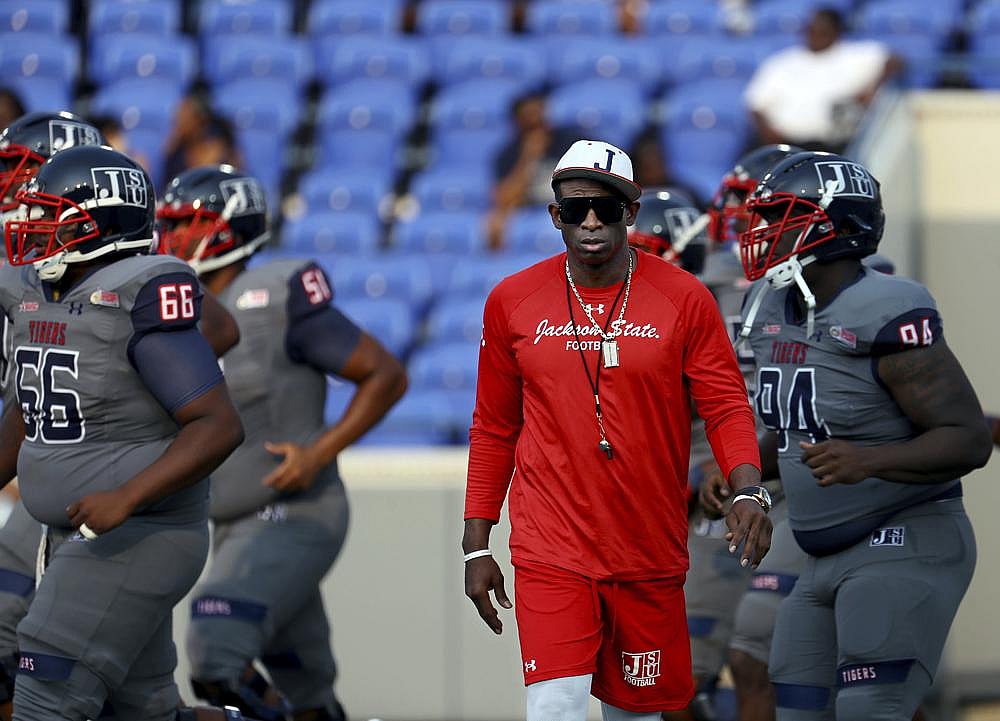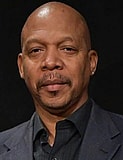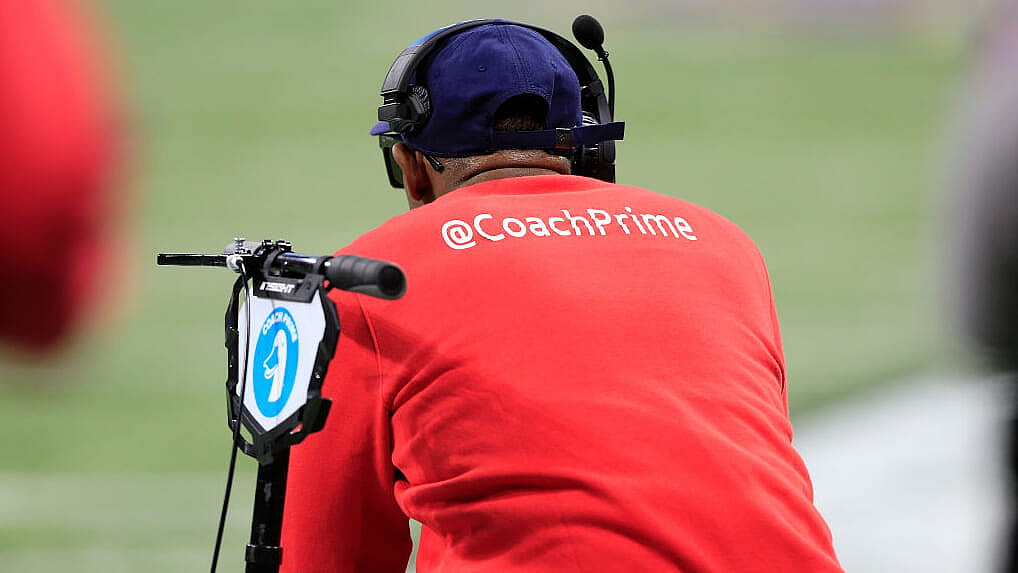Editor’s note: The following article is an op-ed, and the views expressed are the author’s own. Read more opinions on theGrio.
Jackson State football coach Deion Sanders was born and raised in a place that I called home as this century began. We’re both intimately familiar with an area that suffered catastrophic devastation from Hurricane Ian. “Praying for all of Ft. Myers Fla.,” he tweeted last Wednesday. “God please watch over all of them.”
His 4-0 team didn’t have a game last weekend, giving him extra time to check on loved ones. The break also provided a moment to pause and reflect on swirling rumors about his future. At least three predominantly white institutions (PWIs) reportedly could be interested in luring him away. The most intriguing is Auburn, which would put Sanders in the acclaimed Southeastern Conference. His fiercest rival would be perennial championship contender Alabama and coach Nick Saban, co-star in insurance commercials.
Sanders has lived up to his nicknames—“Prime Time” and “Neon Deion”—in less than two full seasons at Jackson State. The football program has vaulted into national conversations and enjoyed glowing reviews. Visit Jackson, the city’s marketing bureau, calculated a $30 million impact from JSU football last season, nearly double the 2019 estimate. On the field, Sanders is 19-5, including a Southwestern Athletic Conference title and Coach of the Year award. His recruiting prowess sent shockwaves through the industry, garnering more attention for JSU and other Historically Black Colleges and Universities.
I think it’s been great for the SWAC, definitely for Jackson State,” Texas Southern coach Clarence McKinney told reporters at media day. “But it’s been great for the SWAC because we have more cameras on us now. We have more eyes watching us. People are paying attention to the SWAC a lot more since coach Prime has been in the league.”
Attention and Sanders have been inseparable since he attended Florida State and emerged as a two-time All-America cornerback with unrivaled athleticism and a persona built for marketing. Lest we forget, he once suited up for the Atlanta Falcons and Atlanta Braves on the same day. Cameras have been nearby since Sanders evolved into a football commentator and commercial pitchman. He’s always been about that money, creating a personal brand years ahead of its time.
Good for Sanders, whom I like, respect and have met on occasion in Fort Myers and elsewhere. I believe he’s genuinely interested in the young Black men he coaches and recruits. He’ll be fine no matter what, whether he stays at Jackson State another 20 years or just two.
But HBCU culture needs safeguarding under the intense lights that have followed him. It also needs shelter moving forward when the attention might wither like a racial reckoning.

I love the way Sanders advocates for HBCU players and schools, insisting on bigger checks for beatdown games and more exposure for prospective NFL draftees. But I’m not crazy about suggestions that Jackson State could follow Hampton and North Carolina A&T in leaving for a PWI conference. I also have strong reservations about an HBCU “super conference” formed by merging SWAC and the Mid-Eastern Athletic Conference, which would cause travel nightmares across all sports and decrease players’ study time.
“Sooner or later some of the prominent schools are going to have to make a decision,” Sanders told ESPN last summer. “What do we want to do? Do we want to sit back and adhere to tradition? Or do we want to put ourselves in a financial situation that our school prospers?”
Me? I prefer that HBCUs bolster and maximize athletic revenue without getting their mission twisted. Unlike PWIs, they have a special obligation to preserve, promote and protect our communal interests. HBCUs have far greater concerns than winning titles and building lavish sports facilities. Emulating behemoths like Ohio State, Alabama and Texas—each with over $150 million in athletic spending—isn’t the way to go.
Even if HBCUs could afford to ball like that, we’d be better off with expenditures going elsewhere.
It’s easy to determine that profits are prioritized over players at the highest level of intercollege sports. Likewise, it’s fair to conclude that Black students at PWIs can struggle to find safe spaces unless they create their own. But HBCUs were formed to have our backs, nurture our souls and fortify our self-worth. Those needs haven’t diminished.
PWIs and HBCUs might not be apples and oranges. But they’re different grapes.
There might be a financial gain for, say, Howard and Morgan State if they land in a conference as the only reds on a shelf of whites. But students wouldn’t have the cultural experience as much, especially homecomings, band battles and road trips against schools low on melanin. Traditional rivalries and trash-talk would die on the vine.
Jackson State and a handful of other HBCUs have become attractive candidates for any conferences looking to expand. “There are some tremendous options that a few of those schools are going to be faced with,” Sanders told ESPN. J. Kenyatta Cavil, a sports entertainment professor at Texas Southern, told Andscape, “we’re seeing the end of the traditional HBCU football experience of the past. What is emerging is a hybrid where some people believe they can cash in and others believe part of the old system can still work.”
Cashing in is good and encouraged.
But HBCUs can’t be sellouts in the process.

Deron Snyder, from Brooklyn, is an award-winning columnist who lives near D.C. and pledged Alpha at HU-You Know! He’s reaching high, lying low, moving on, pushing off, keeping up, and throwing down. Got it? Get more at blackdoorventures.com/deron.
TheGrio is FREE on your TV via Apple TV, Amazon Fire, Roku, and Android TV. Please download theGrio mobile apps today!


